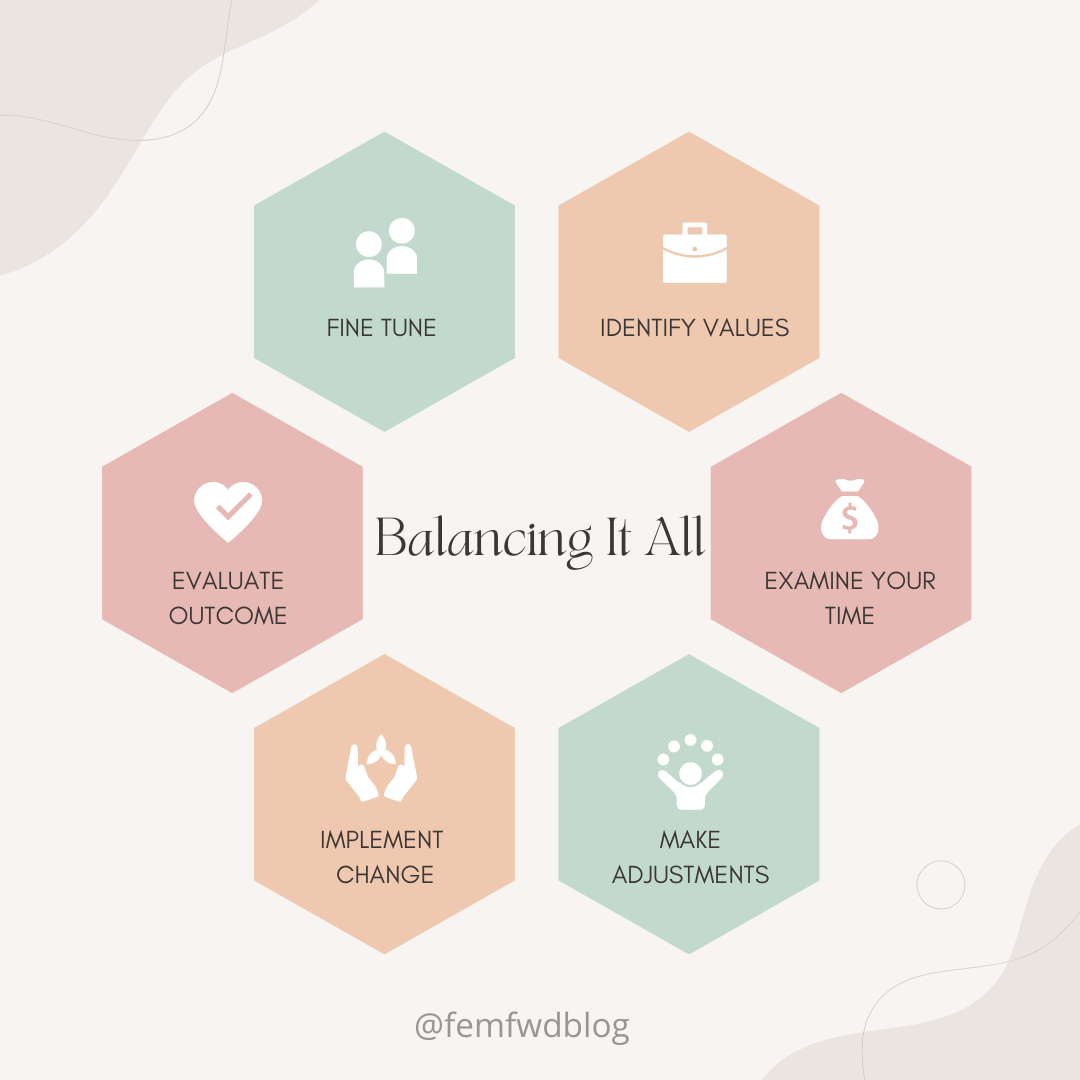Working Mom: Finding Balance in Life
In my previous article Mom Burnout: Finding Balance, the solutions involved small ways that I have learned to manage our chaotic schedule and life now that I am a mom, wife, and working professional. Like I said, it is not easy. However, there are times in our lives that BIG events completely rock our world. These life stressors can be anticipated or catch us by surprise. This can be a divorce/separation, death of a loved one, medical emergency/accident, a move, marriage, job changes, or the birth of a baby…just to name a few.
These events cause a jolt to our system and changes our daily functioning. They often cause a ripple effect for a while. Maybe even forever. Whether good or bad, it can feel like the waves just keep crashing down and it is hard to come up for air. You might experience stomach aches, headaches, other bodily ailments, panic attacks, anger outbursts, or periodic crying spells. Whenever I feel this overwhelmed, it is hard to know what to do and how to put one step in front of the other.
Remember, you’ve got this! You have done it before. This season will not last forever. Acknowledging and recognizing the pattern of how you are feeling can really help. Sometimes, I literally have to sit down for a couple minutes, take some deep breathes, and do a body scan. Below is a brief one…try it out! Once I feel more grounded, I have to assess the situation to see if this season is something I can temporarily maintain, thus mentally cope (e.g., scheduling daily small things that center me and giving myself a pep talk like, “You got this. You have gotten through though things before.”), or if I need to make some bigger life adjustments to find balance.
Body Scan Meditation
Here is a small 2 minute exercise to help you cope in the moment. While this might feel kind of strange, try it out. Don’t knock it, before you try it. It might just help you feel more grounded!
Sit down in a comfy chair and let your body sink down. Take a deep breath in, and slowly let it out. Take another breath in and slowly let it out. Notice where you are holding tension. Is it in my jaw? My shoulders? Now breathe into that tense place, and notice it loosen as you breathe out.
These are the little, and sometimes big, moments where we need to take a step back, recognize the emotional space we are in, and take steps to help us cope and adapt differently. If you liked this exercise, check out these quick deep breathing and body scan exercises on MyLife, on YouTube, or the app, Headspace. They are easy, quick, and great ways to unwind when you are feeling worked up.
Self-Love: Prioritize Yourself
Every day, pick one thing that you can do for just you. It might be a 10-15 minute thing or even an hour and a half. Make sure to communicate it with your partner and plan for it. Perhaps, you can return the favor to your partner by giving them their time as well. Here are some ideas:
taking exercise class
walking outside
enjoying a hot bath/shower without interruptions
doing your hobby
laying down to just breathe
taking a nap
painting your nails
reading this blog
watching a show
drinking a cup of coffee or tea in peace
Finding Balance in Life
Within my own clinical practice and personal life, I have realized resilient people and family systems consistently have to re-adjust and adapt when BIG changes take place. Once you acknowledge this is just too much and you are out of crisis mode, spend some time examining the following. Here is a sequence of strategies to make the long term changes you want in order to live in a more balanced way.
1. Personal Values: What’s most important to you?
In my observation, many of us have anxiety or depression when we do not live by what we value in life. These values may change over time as well. Values are the things we cherish the most: quality time with family, job, friendships, safety, health, money, alone time, time for personal interest/hobbies, etc. A teenager may not put health as a top priority and trade it for time with friends, while an younger adult with a family might consider family as their number one. Therefore, what we value in the moment can change.
Write a list of things you value most on your phone or piece of paper. Rank them in order. Be honest with yourself too. If you want more guidance, consider talking with a mental health profession about Acceptance & Commitment Therapy (ACT) or checking out an ACT self-help book.
2. Examine How You Spend Your Time
Once you have an idea, look at your schedule Sunday through Saturday. Notice how or where you spend most of your time.
How do your values align with your schedule or the way you live your life?
Now, there are often some very real barriers that get in the way of living your life according to your values. Next to your values, write down all the barriers. For instance, many of us will quickly notice that we spend most of our time at work and have to work a full-time job. Sometimes our barriers are real and temporary, but they don’t have to be permanent. Just entertain the idea of how you would like to have your schedule look different.
Would your job allow different hours or even different days? Can you negotiate your pay and work a little less?
Other ways to make adjustments to your life is to consider ways to let go or shift some of the responsibilities (e.g., doing the laundry, cooking, cleaning dishes or bottles, bathing the kid(s), helping with homework, taking kid(s) to extracurriculars, etc.).
Can you hire someone to help with cleaning, even if once a month?
Will someone (friend or family) help you with some of the household tasks?
What can you let go of?
3. Use Effective Communication
If you are in a relationship, communicate with your partner. Address your concerns and struggles, while also introducing your ideas. Identify the barriers and problem-solve together. If you struggle to communicate with your partner, check out our workshops below.
4. Implement Change
Determine the steps needed to implement the change you need/want. Do you need to talk to your boss/employer? Set-up a time to talk with them. Assert your needs with confidence.
5. Evaluate Outcome
Examine whether the changes you made feel centered, good, or balanced. Notice the positives and evaluate the negatives.
6. Adjust
Once you have your new schedule in place, would you make any additional changes? Is it possible to fine-tune or work out the kinks?
Relationship Advice For Women
As always, thanks for reading! We are all about teaching people, especially women, who to have more satisfying relationships. Sign up for our newsletter to receive our newest blogs right to your inbox!



